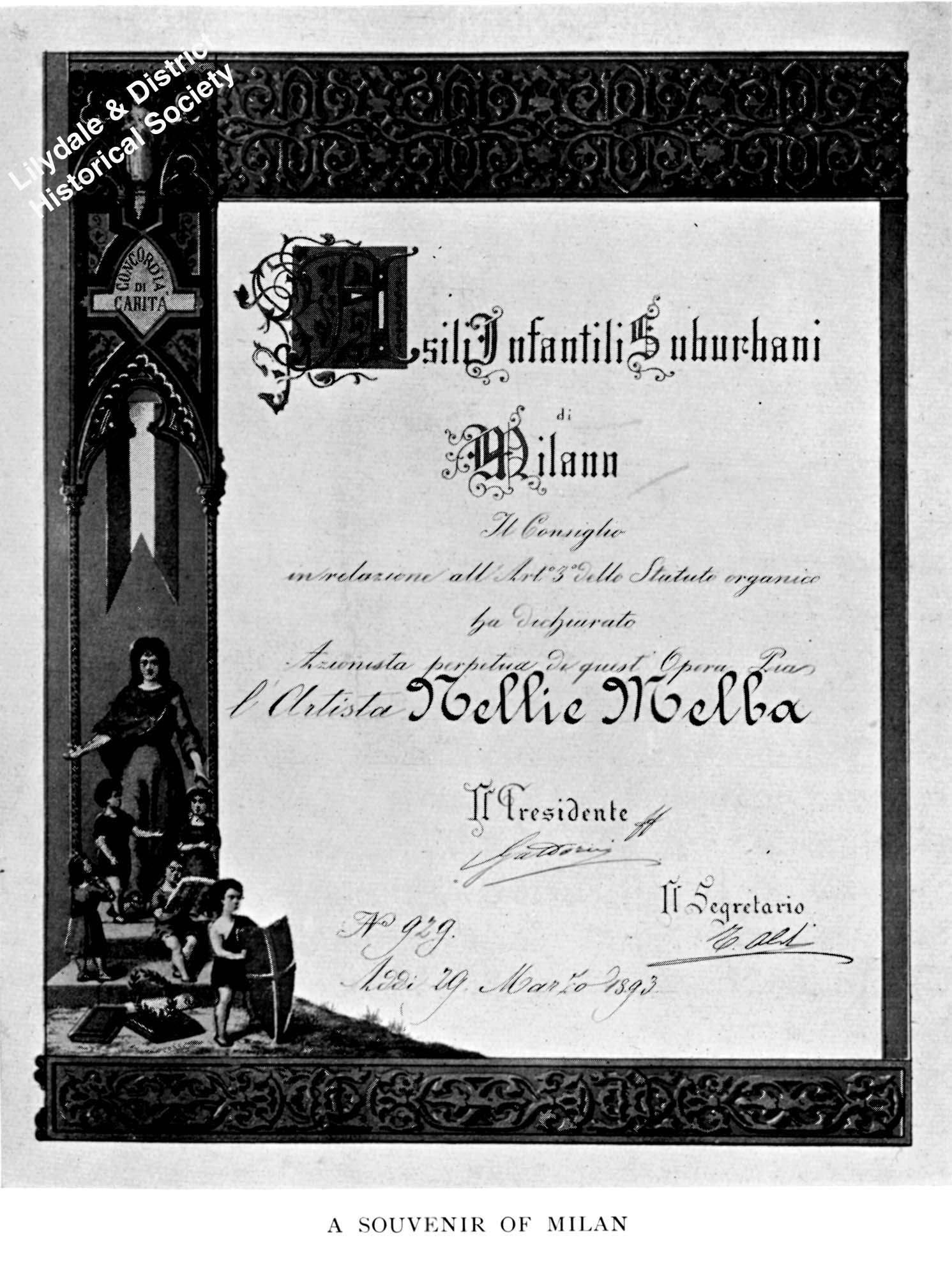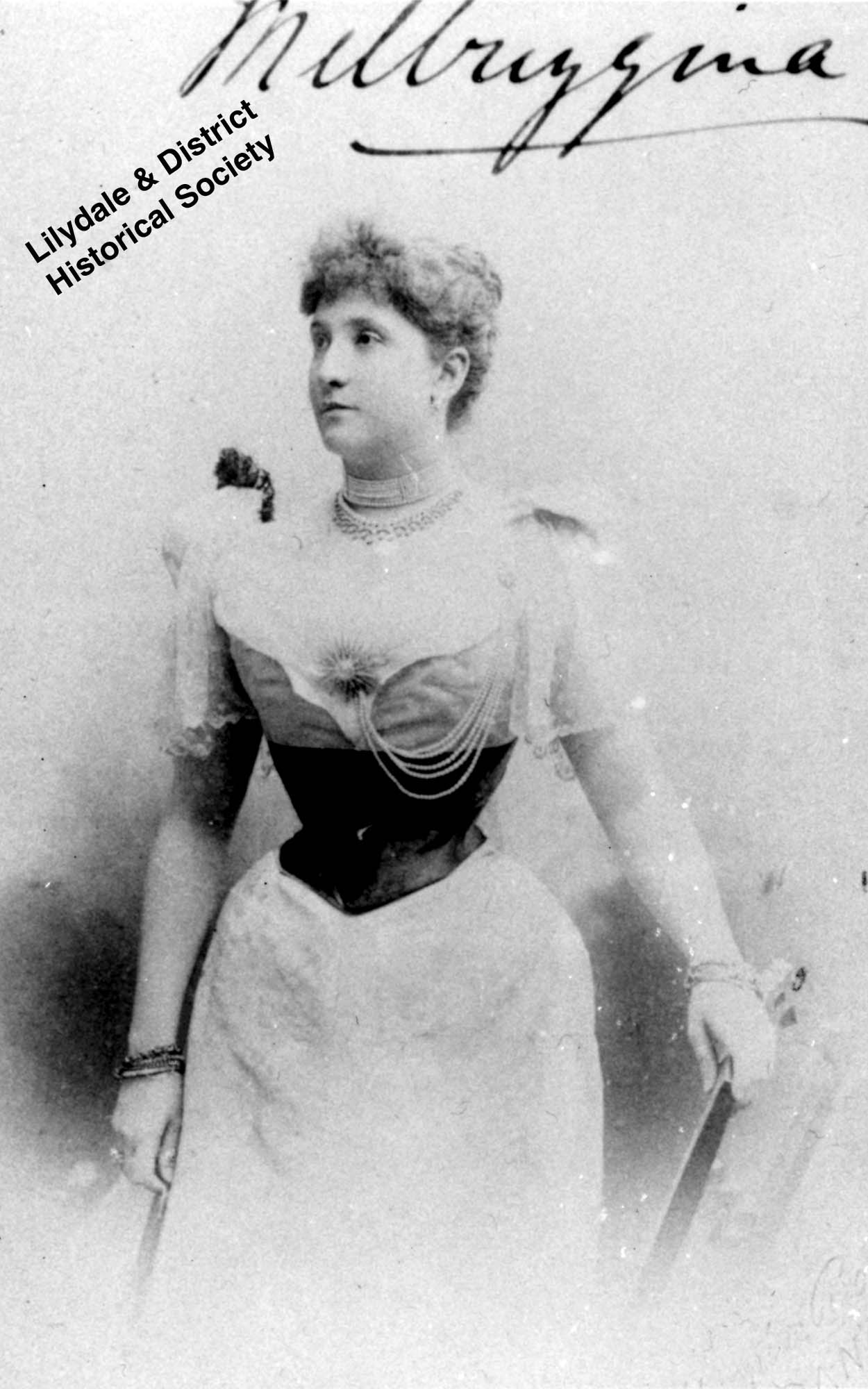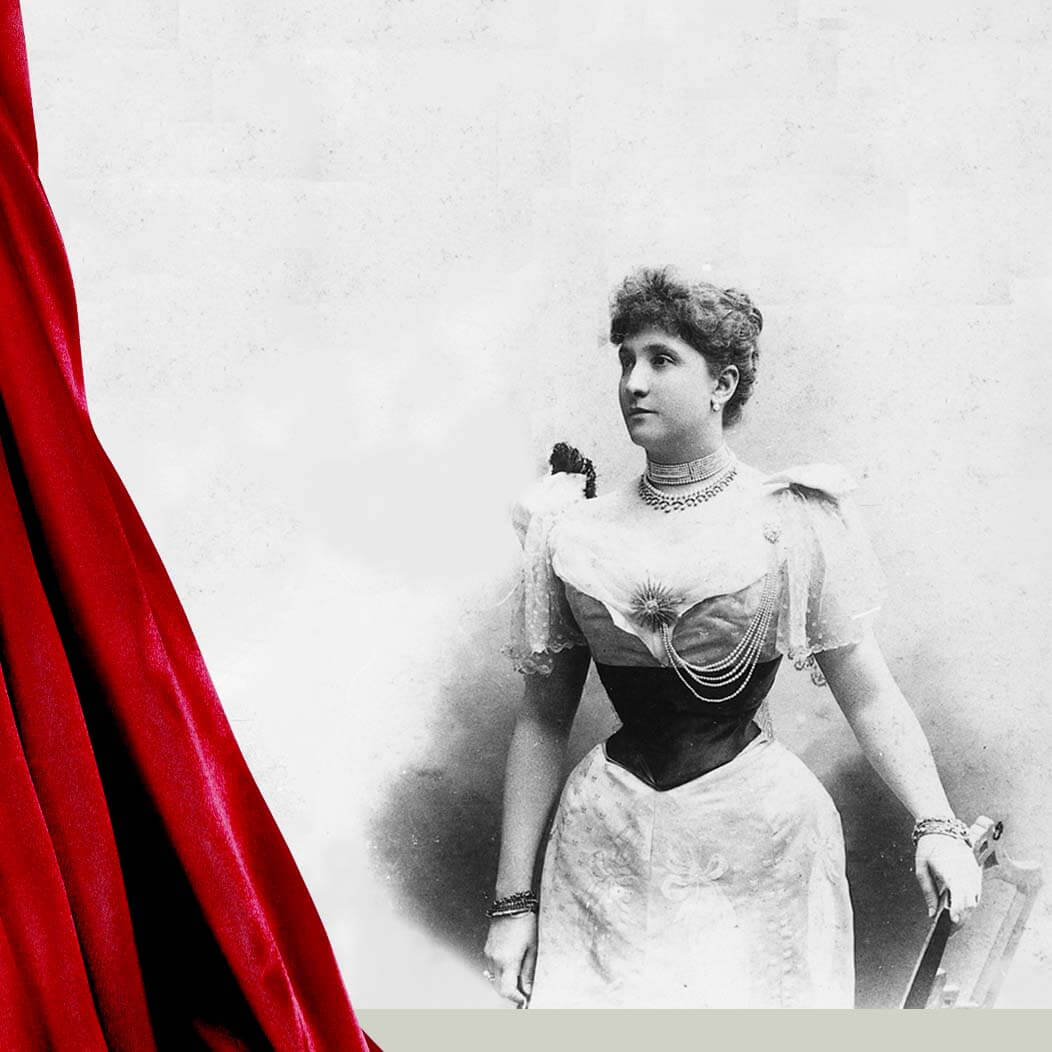
Countries | Italy
A Time of Terror
In the Spring of 1891 Melba went to Palermo to sing in La Traviata. She had been engaged to sing in New York that year, but the Metropolitan Opera House burned down. Nellie did not demand her fee and so found herself short of money. (1)
However, to be a true opera star Melba had to conquer another Italian audience – the audience of the La Scala Opera House in Milan.
Melba had never sung at La Scala, Milan, the greatest name in opera and the home of the most critical and biased audience in the world; and when offered an engagement there she was fearful of the reception she might get. Foreign singers were not popular at La Scala, and the opera aficionados would be quick, if not eager, to notice the slightest flaw in her performance. (2)
Melba’s chance came when she was invited to make her La Scala debut in March 1893 but to her it was a time of terror.
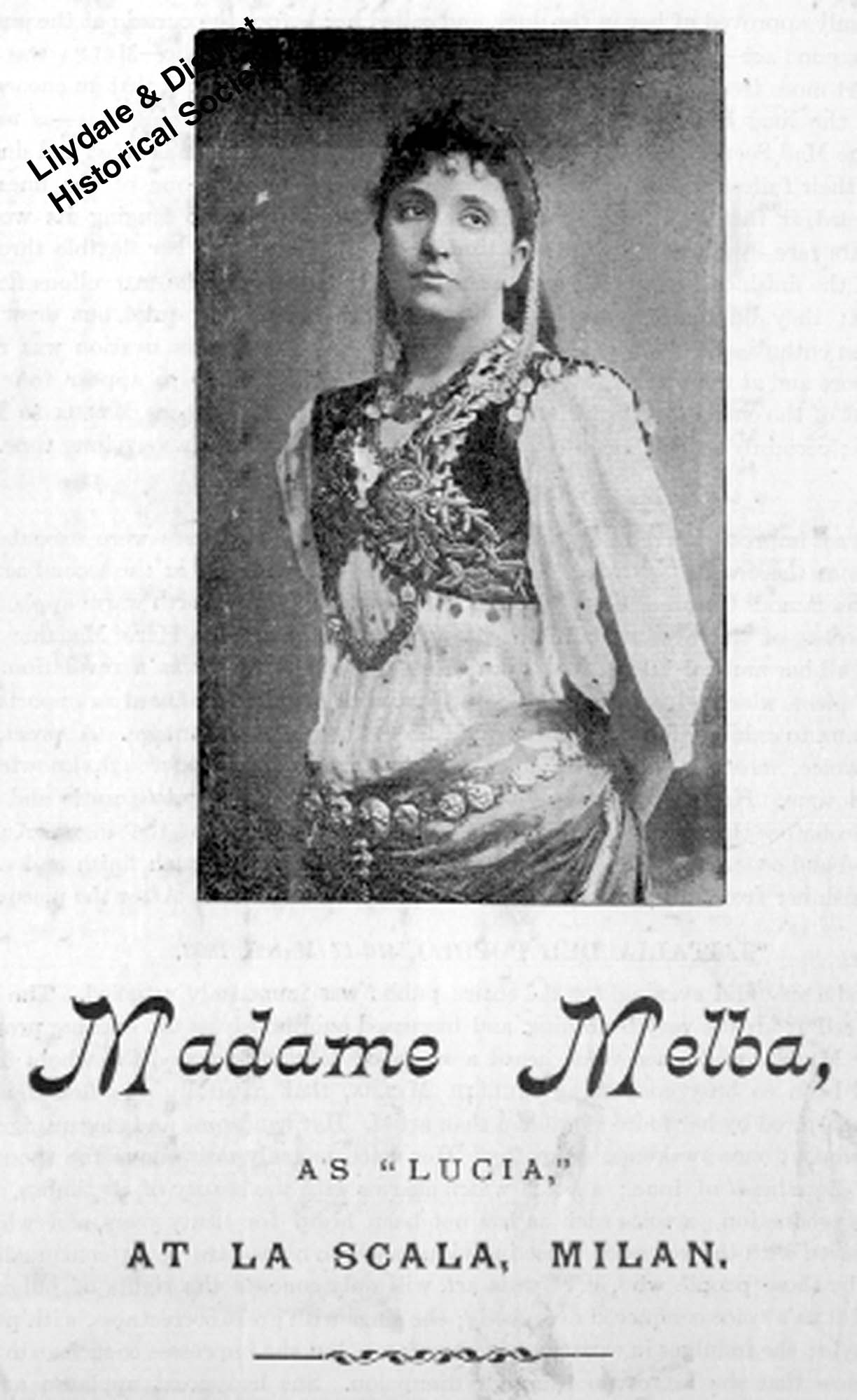
“I had arrived at Milan trembling with excitement at the thought of singing in the great Opera House of La Scala, which was (as I well knew) one of the most critical audiences in the world. But very soon I was trembling with another sort of excitement, for immediately I entered my hotel, I was handed a batch of letters in a strange spidery handwriting, which as soon as I opened them proved to be from anonymous enemies, all threatening me with various sorts of disaster unless I left Milan immediately.” (3)
Melba chose to ignore them but more arrived each day – claiming poison would be put in her food; a lift would break if she got in it and another a stiletto (knife) was waiting if she went out at night.
“Every mouthful of food I took seemed likely to poison me. I would not go even downstairs, let alone out of doors.” (4)
Melba wanted to leave but her secretary Louie Mason a good adviser, friend and secretary convinced her to stay.
Louie, a good adviser, friend and secretary, and tower of strength, stood together with Melba in the wings of the theatre, waiting for endless minutes before Lucia walks on to the stage. Melba looked out at the audience and her fears were confirmed by seeing the occupants of the stage boxes with their backs to her. In fact, at La Scala, some of the seats are turned away from the stage. However, when Melba started to sing, every face turned towards her, and at the end of the performance Melba again knew the elation that she had felt at her first success in Brussels. From then on it was ‘those golden days in Milan’. (5)
Terrified, Melba walked on stage to sing Lucia di Lammermoor on March 16, 1893.
“How I ever sang my initial recitatif I do not know to this day. It was a terrible ordeal. But it was also a very brief one. For before I had finished, an immense “Brava! Brava!” echoed all over the theatre. The rest of the performance, though I say it myself, was a crescendo of triumph, and I am told after the Mad Scene the applause went on for ten minutes.” (6)
For Melba, the ordeal gave new meaning to staying to face the music.
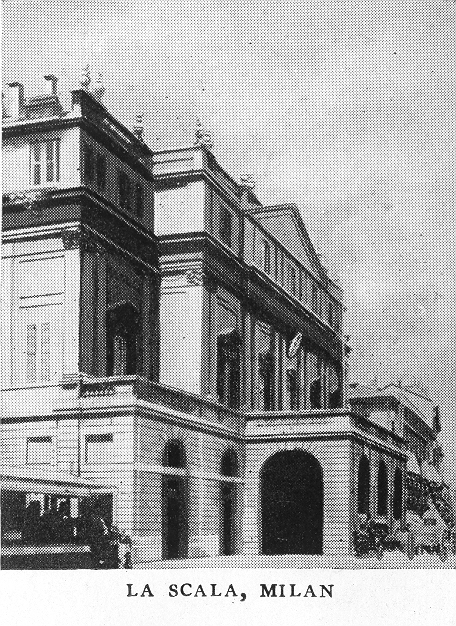
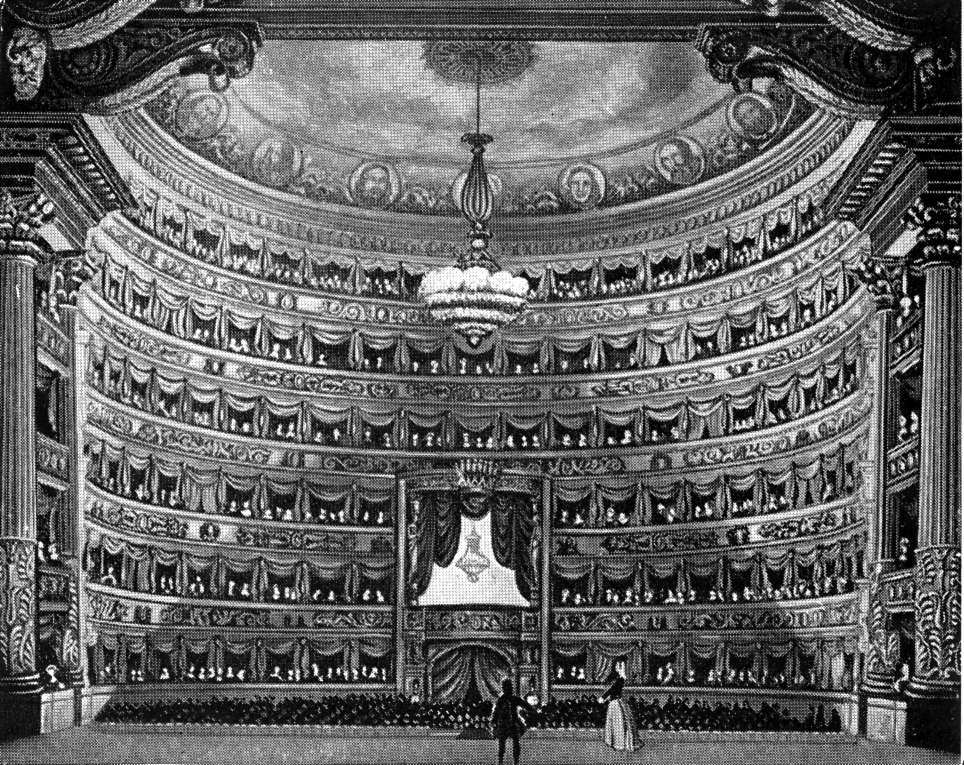
Writing after Melba’s success, the Pall Mall Gazette reported on Melba’s ordeal.
“To say an Italian audience is difficult is to say little – it is hostile, aggressive and rude. A debut under such circumstances is an ordeal out of which but a few escaped unhurt, and to undergo it requires as much nerve and talent.”
There were about 30 letters ranging from practical jokes and advice to threats and these were referred to the police. (7)
What the critics said of Melba’s debut
Alod Noseda of Italy’s Corriere della Sera wrote on March 17, 1893:
‘Madame Melba won a great battle yesterday. Many are the stars who have fallen on the stage of La Scala, and how much greater was the fame which preceded them, how much more were we led to expect from them! Yesterday evening’s success counted as one of the most gratifying to the amour propre of an artist, and, let us frankly say, was flattering to the reputation of our public, who discerned, with the fine taste of a connoisseur, the exceptional qualities of the singer, who left little to be desired even as an actress.’
He referred to Melba’s ‘marvellous facility of production’, ‘seduction of timbre for spontaneity of vocalization’, the ‘finished art of modulation’ and the ‘pureness of intonation’. (8)
English translations of Italian newspapers` reviews of Melba`s La Scala debut.
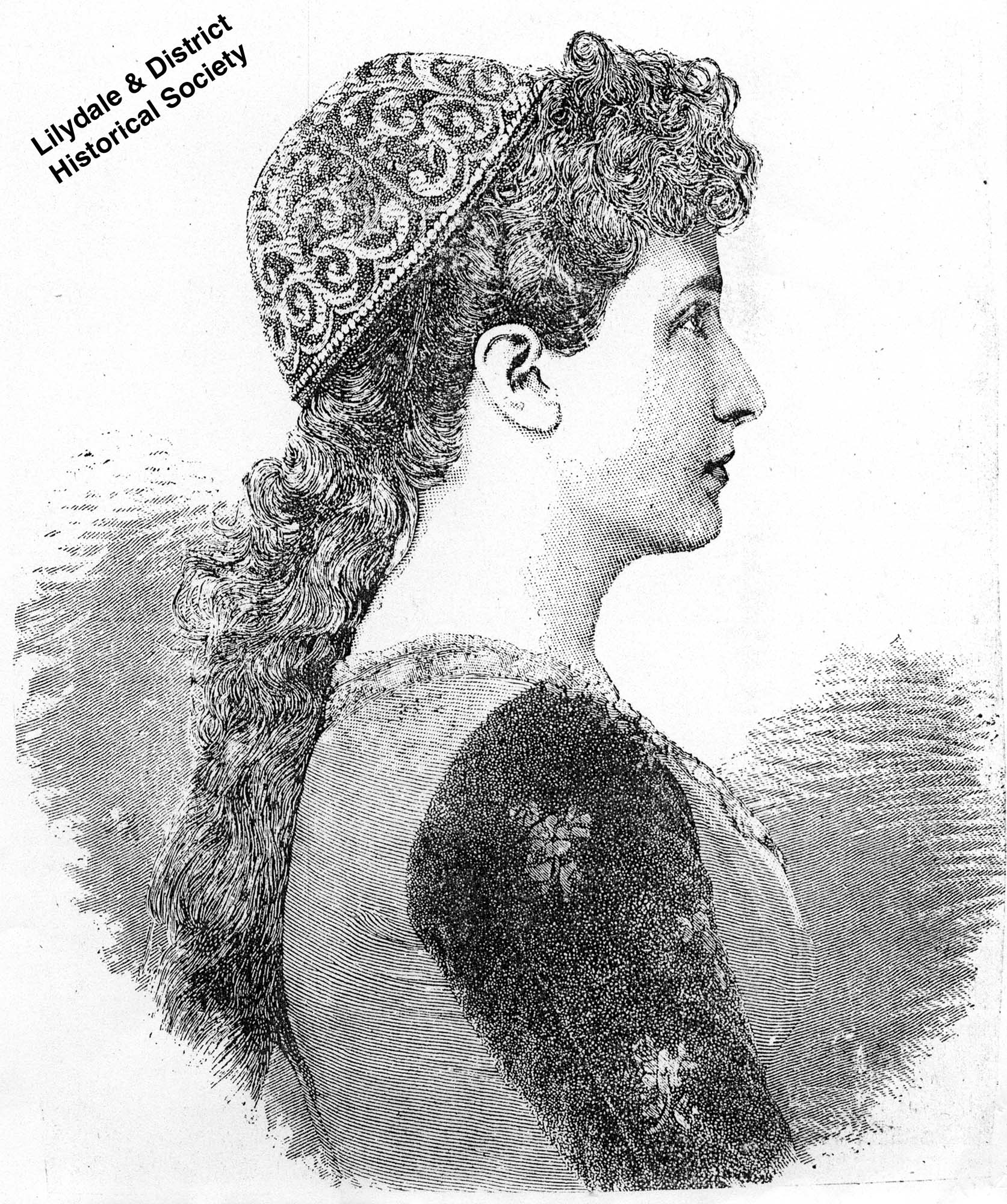
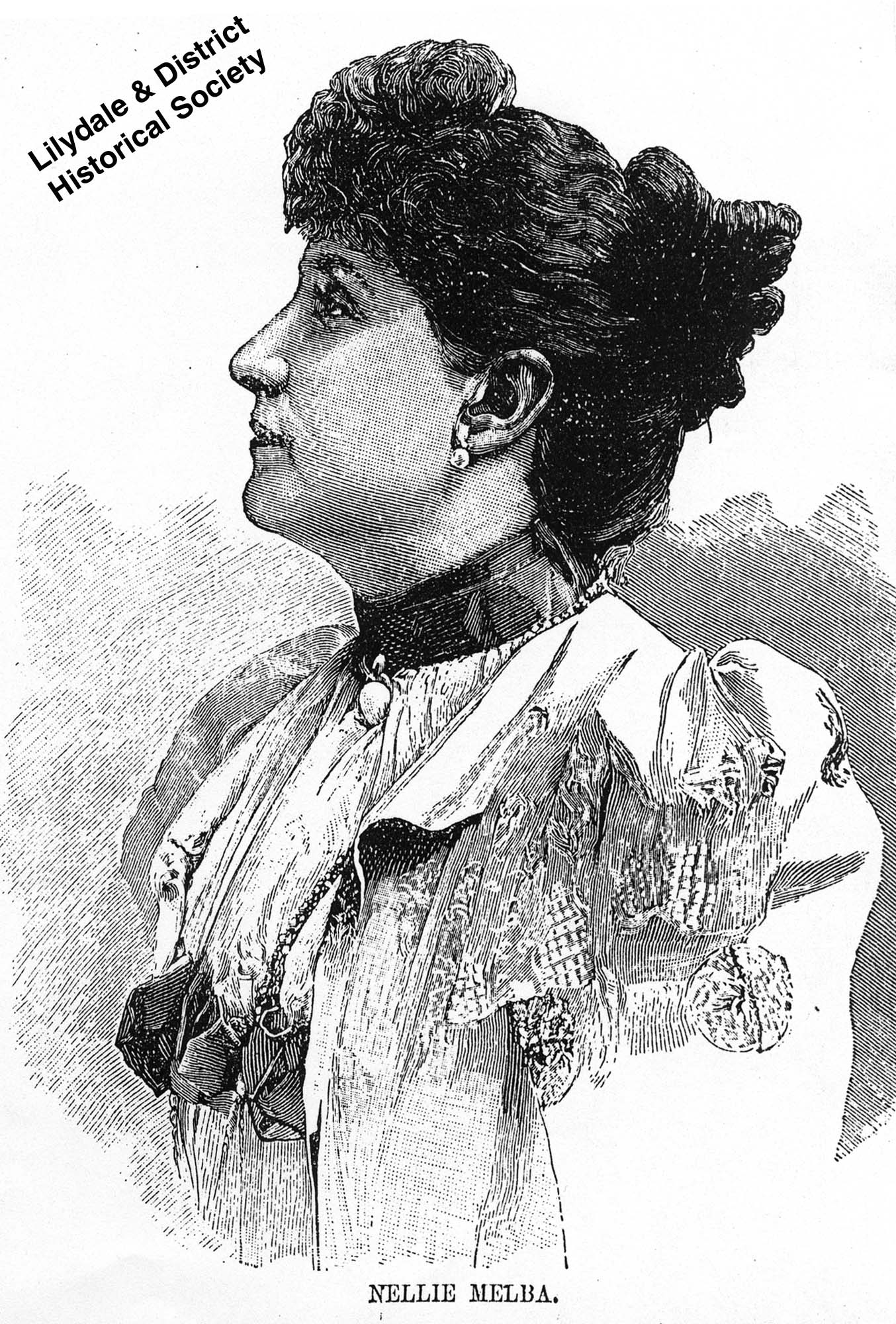
Her next appearance was in Rigoletto. It’s composer, Maestro Verdi, honoured her by his presence in the audience. Nellie studied his opera Otello, with him. He smiled at the end of the session, asking with whom she had learnt the role. ‘With Tosti.’ ‘Ah! Tosti, he is the only one who could teach you to sing my opera like that.’ (9)
To mark the occasion of her debut, season, before leaving Milan, Melba was presented with a special certificate.
Melba’s success at La Scala brought forth other engagements in Italy – at Florence, Turin and Genoa where she was supported by some of the soloists, the chorus and orchestra of the historic La Scala opera house. (10)
Her first glimpse of the Italian countryside and insight into Italian art and culture made a strong impression on Nellie. The warm Italian welcome she received in each city was a joyful experience. In her exuberant writings to her sisters she signed the Italianized version of her name, Melbrizzina, to amuse them echoed her delight in her success with the discriminating Italian audience. (11)
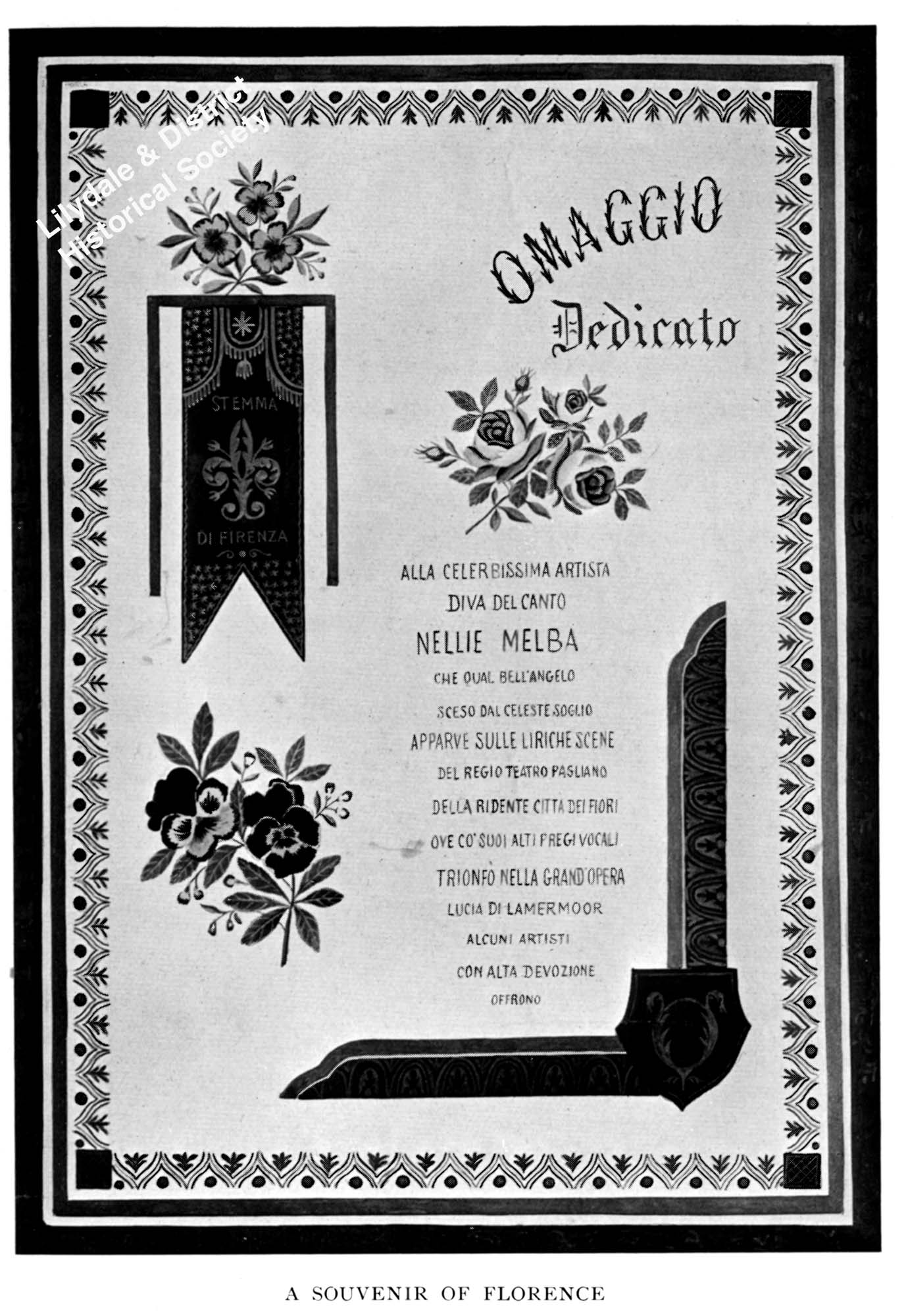
Her tour ended with a series of concerts at French provincial towns including Marseille and Lyons before arriving back at Paris. (12)
In May 1894 Melba sang for the second time to an enthusiastic audience at La Scala in Milan. (13).
References
(1) Melba A Family Memoir, Pamela Vestey, Pamela Vestey, Victoria, 2000 second edition, pg 73.
(2) Op. Cit. pg 79.
(3) Melodies and Memories, N. Melba. Thornton Butterworth Ltd, London, 1925. pg 110.
(4) N. Melba, Op. cit., Melodies and Memories, pg 111.
(5) Op. Cit. Melba, pg 80
(6) N. Melba, Op. cit., pg113.
(4) The Pall Mall Gazette, London, undated Melba’s scrapbook.
(5) A. Murphy, Melba: A Biography, Doubleday, Page & Co, New York, 1909, pg 78.
(6) A. Murphy, op. cit., pg 76.
(7) P. Vestey, Melba: A Family Memoir, Pamela Vestey, Coldstream, Melbourne 2000, pg 81.
(8) N. Melba, op cit., pg 115.
(9) N. Melba, op. cit., pg116.
(10) N. Melba, op. cit., pg115-116.
(11) A. Murphy, op. cit. pg 100.
(12) P. Vestey, op. cit., pg 80.
(13) N. Melba, op. cit., pg 117.
Online Shop
Purchase books, CDs, photographs and other merchandise
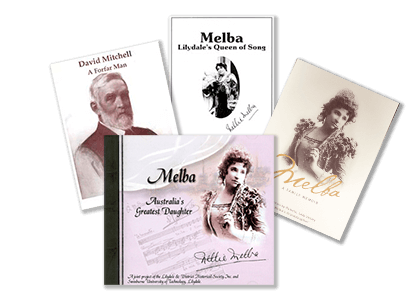

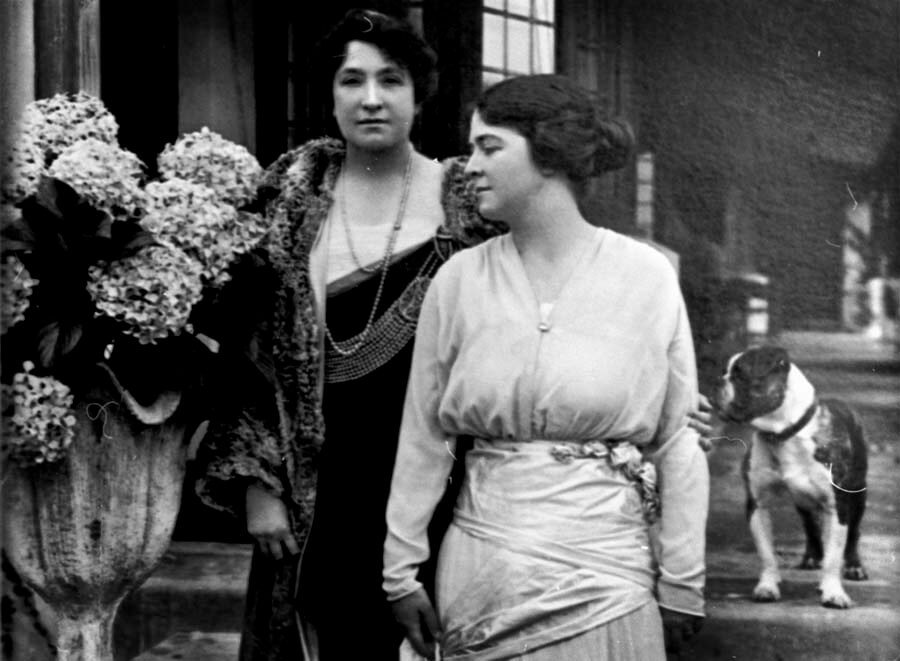
Share Your Information with the Museum!
Email us your info (and images) to:
[email protected]
Our home is the Old Lilydale Court House:
61 Castella Street, Lilydale 3140
Hours of opening:
By appointment only:
Fridays 1 to 4pm and Saturdays to Mondays 11am to 4pm.
Sundays are preferred.
Closed Public Holidays
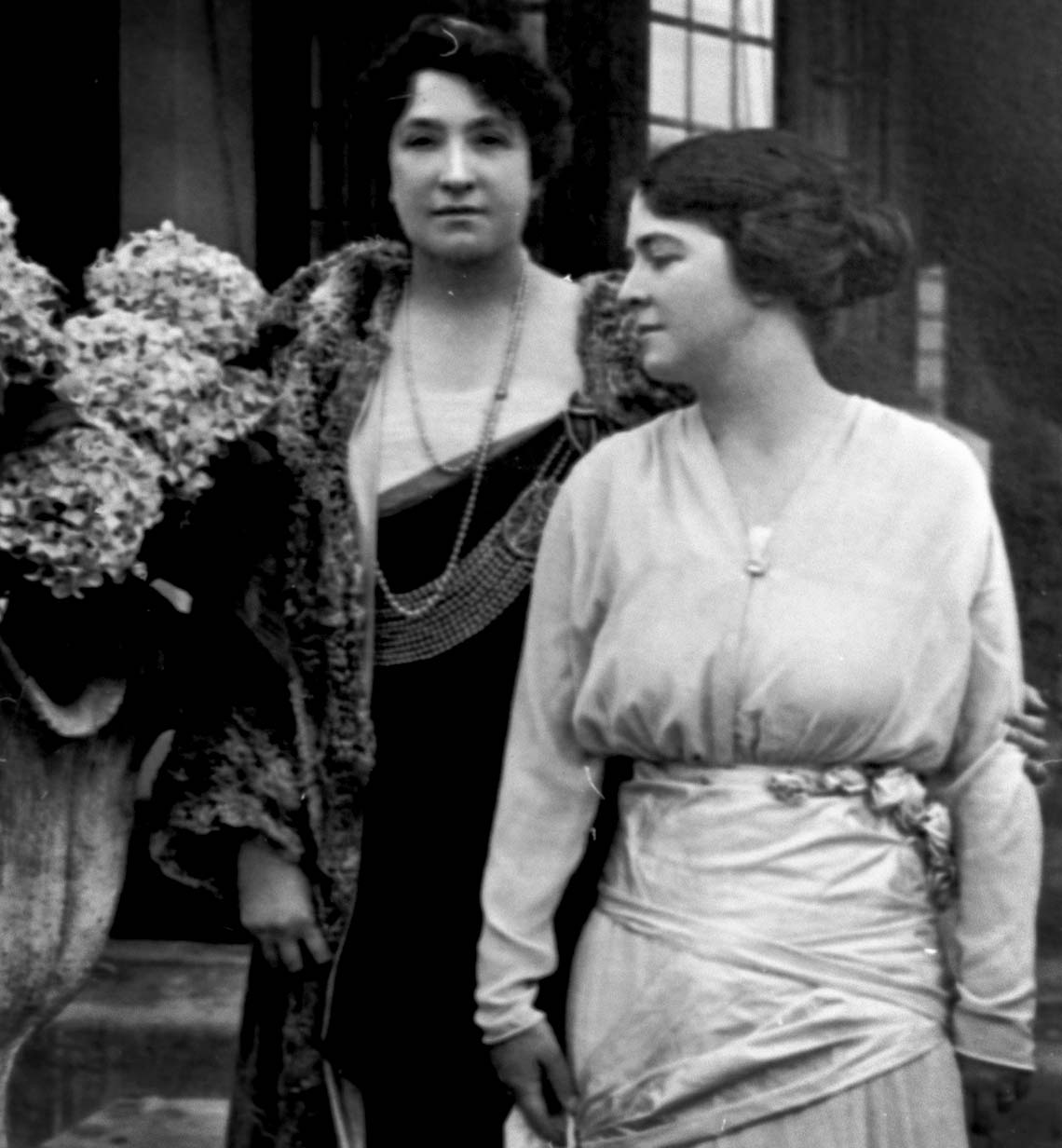
Nellie Melba Museum
Contact Details:
Sue Thompson: 0475 219 884
Email: [email protected]
Share your info with us:
[email protected]
Our home is the Old Lilydale Court House:
61 Castella Street, Lilydale 3140
Hours of opening:
By Appointment only:
Fridays 1 to 4pm and Saturdays to Mondays 11am to 4pm.
Sundays are preferred.
Closed Public Holidays

Nellie Melba Museum
Contact Details:
Sue Thompson: 0475 219 884
[email protected]
Nellie Melba Museum
Contact Details:
Sue Thompson: 0475 219 884
[email protected]
Our home is the Old Lilydale Court House:
61 Castella Street, Lilydale 3140
Hours of opening:
By appointment only:
Fridays 1 to 4pm and Saturdays to Mondays 11am to 4pm.
Sundays are preferred.
Closed Public Holidays
Share Your Information
with Nellie Melba Museum!
Sue Thompson: 0475 219 884
[email protected]

